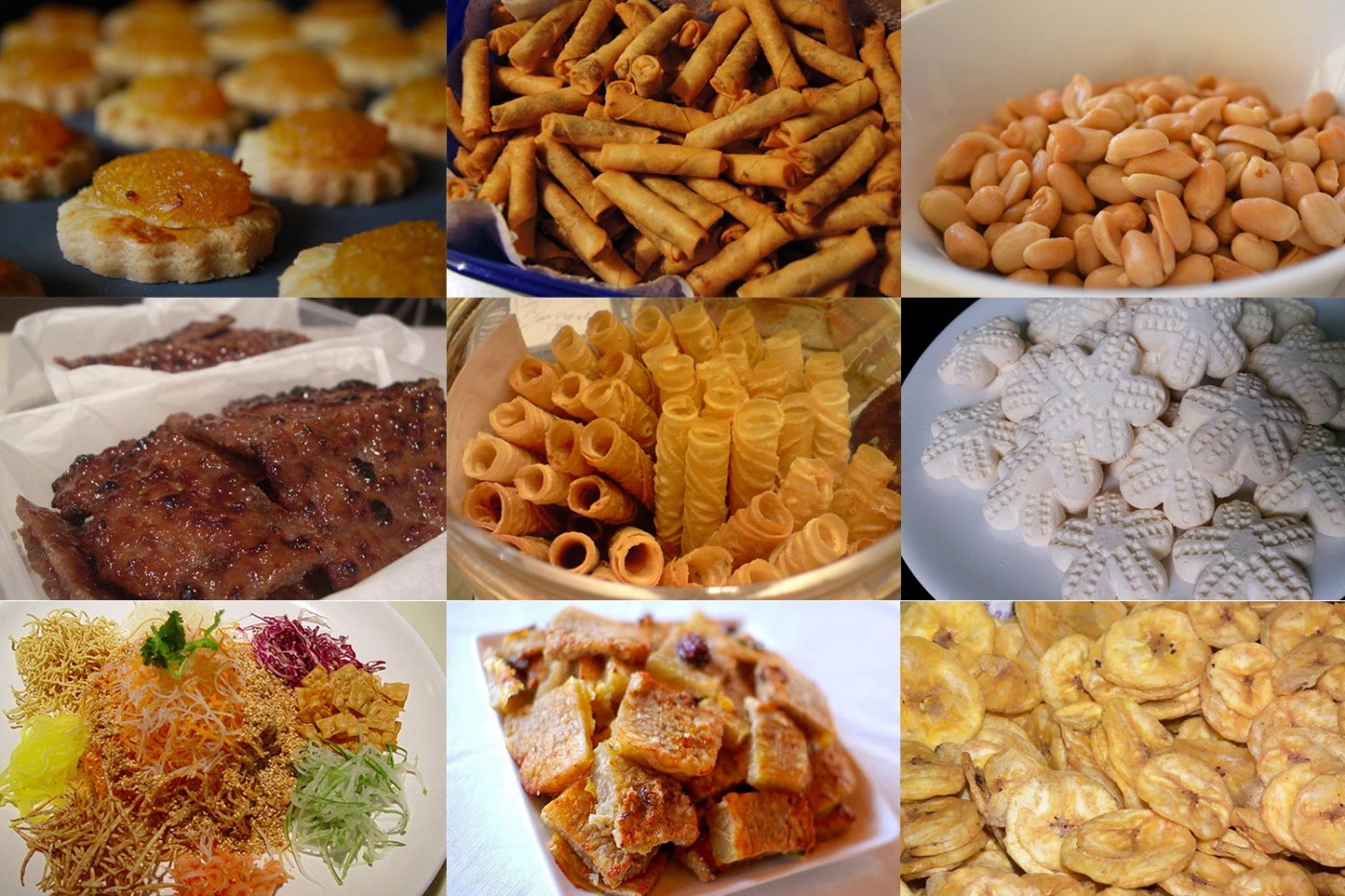Stay Healthy This CNY: Watch What You Eat
Chinese New Year is one of the most important celebrations that everyone looks forward to every year. It is the time when people come together to bond and of course, feast on delicious food that make our bellies very happy.
Blissfully unaware to many, these Chinese New Year goodies contain a lot of carbohydrates and sugar, and are considered to have a high Glycemic Index (GI). Glycemic index is a number that indicates how fast the sugar in foods are broken down and released into the bloodstream. Hence, consuming foods with high GI can cause your blood sugar level to rise rapidly, which is harmful to your body. Believe it or not, but two slices of bak kwa contain the same number of calories as a plate of chicken rice while six pineapple tarts have the same amount of calories as three bowls of rice.
Here is a calorie breakdown of some popular Chinese New Year food:
Peanuts (20g) contain 113 calories, 10g of fat and 0.8g of sugar.
Love letters (2 rolls) contain 112 calories, 2.1g of fat and 9.9g of sugar.
Bak kwa (1 slice) contains 229 calories, 7.8g of fat and 24.5g of sugar.
Pineapple tart (one 20g tart) contains 82 calories, 4g of fat and 6g of sugar.
Dried shrimp rolls (10 rolls) contain 228 calories, 14g of fat and 2g of sugar.
Kueh bangkit (2 cookies) contain 46 calories, 2g of fat and 2g of sugar.
Yu sheng (385g portion) contains 560 calories, 42g of fat and 15g of sugar.
Nian gao (20g) contains 46 calories, 0.1g of fat and 7g of sugar.
Banana chips (100g) contain 519 calories, 33.6g of fat and 35.3g of sugar.
If you are health and weight conscious, here are some tips:
1. Be aware of what you put on your plate
Avoid “unconscious eating” by placing one or two pieces on your plate, and take smaller bites so that they last longer. Another great way is to talk more and socialise with others, so that you won’t feel the urge to go for second helpings. You can’t chew while having a conversation right?
2. Don’t go on an empty stomach
If you are making a house visit while feeling hungry, you may tend to station yourself at the goodies-filled table and we all know you are not there to admire the food, so practise some self-control. If not, try to fill yourself up with healthy foods such as fruits, vegetables and whole-grains before your visit.
3. Eat slowly
Your brain takes around 20 minutes to register that your stomach is full. So eating your food slowly allows your stomach the time it needs to digest thus preventing yourself from overeating.
4. Watch your beverage
Alcohol, soft drinks, sweet beverages contain calories so try to opt for water instead. If you really want that glass of wine or a can of coke, take smaller sips to make it last longer!


